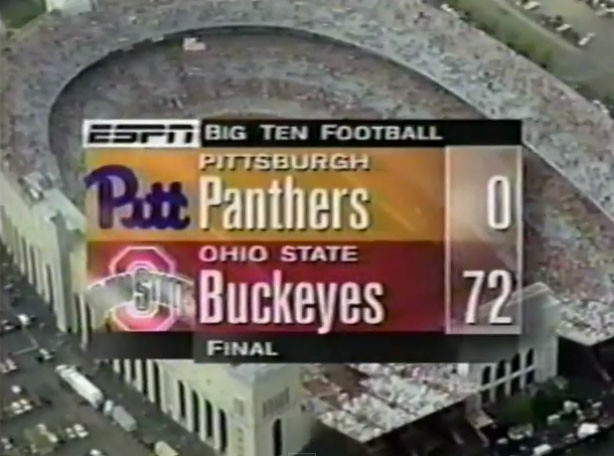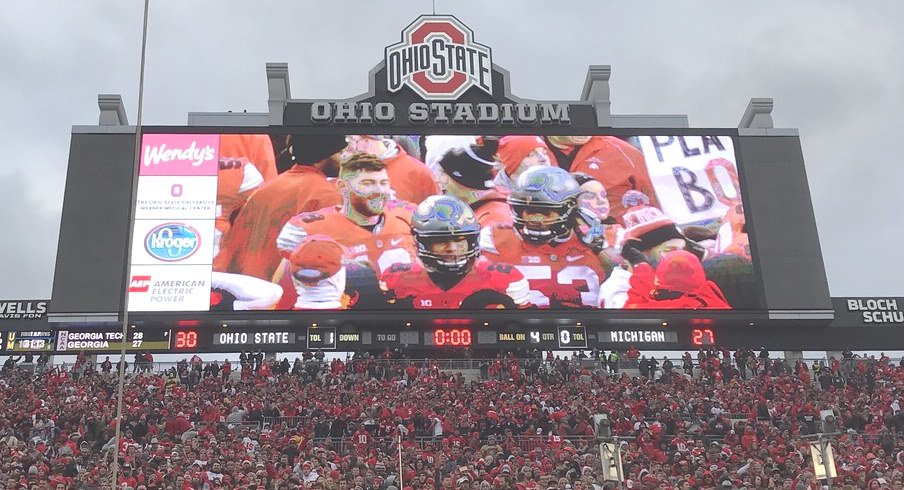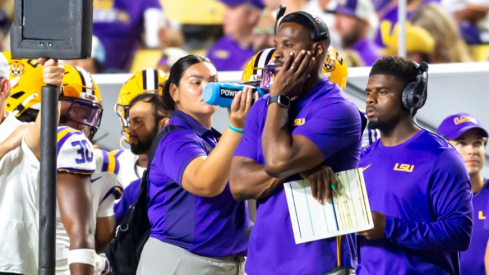LeBron James broke the 34 year-old NBA scoring record this week.
But I don't need to tell you that. This was international news. You already heard about it, either via social media or your bro from work or hell, the Bangkok Post out of Thailand. James scored his 38,388th point, surpassing Kareem Abdul-Jabbar and pulling off one of those rare accomplishments in sports where even the casual observer goes "damn, that's an absolute assload of points!"
38,388 points doesn't really need to be contextualized for anyone; unless it's something asinine like quidditch or netball, scoring 38,388 of something is a self-evidently badass thing to do. Sure, it's possible to contort yourself into knots to downplay the achievement, but you'll just expose your hatin' ass for the jealous wiener that you are (instead of the scholarly intellectual you want people to see you as).
LeBron James is the biggest bust in NBA history! pic.twitter.com/foGXzwCvQs
— Message Board Geniuses (@BoardGeniuses) February 9, 2023
The record, then, exists as one of many glowing neon statistical demarcation lines between "great" and "legendary". It's impossible to not recognize the record for what it means.
College sports used to have a similar relationship with integers and various algebraic notations as they related to achievement. Numbers that you could rely on to mean something; sure, they might've failed you in sophomore year geometry, but now you're an adult, so numbers that tell you about yards per carry and average win totals are your friend. They help you make sense of sports by acting as a perpetual measuring stick that contextualizes everything that you're looking at.
People make a lot of money off of this premise. Guys like Bill Connelly and Ken Pomeroy have predicated their entire careers on the idea that statistics can make an abstract sport more knowable, more approachable. And while Connelly and Pomeroy generally do a pretty good job at that, their end goal is to give you a snapshot in time, not carve a marble bust for a particular player, team, or coach in the annals of sports history and measure them against everything that's ever come before.
That's our job, as fans.
But I'm starting to wonder what collegiate statistical touchstones remain (particularly in college football) that we would watch get surpassed with any kind of reverence.
A few examples:
In 2019, J.K. Dobbins rushed for 2,003 total yards, reaching a milestone that no Ohio State running back had ever gotten to in a single season. He did it via 27 fewer carries than Eddie George took to rack up 1,927 yards in 1995, and it's over 300 yards more than any individual season Archie Griffin ever had. It was the best season an Ohio State running back has ever had. So why doesn't it (the record) and Dobbins (the athlete) stick in our consciousness in the same way that George and Byars and Elliott do?
Part of it, I think, is circumstantial. Eddie George won the Heisman in 1995, Keith Byars should've won it in 1984, and Ezekiel Elliott was the centerpiece of a national championship-winning team. All of that makes peanuts into peanut butter in our memories.
But also: what's 2,000 yards anymore? In the last ten seasons of college football, the 2,000 yard mark has been eclipsed 14 times. In 2019, three other guys hit 2k, including Wisconsin's Jonathan Taylor, which probably took a little of the shine off of Dobbins' season. It shouldn't have, of course; 2,000 rushing yards in a single season is still pretty incredible. But it's undeniable that the standards by which we judge statistical success in college sports has changed dramatically in the last few decades.

Passing yards feel skewed, too. 3,000 passing yards in a single season seemed like a pretty high bar, and it was, until you consider that it's been met in every single full season of Ohio State football since 2017. Again, circumstantial: Ryan Day's influence on the offense is profound. But it's jarring for a lifelong fan of college football in general, with memories of Big Ten quarterbacks staring down their wide receivers like uninvited party guests sticking their finger in the hummus. C.J. Stroud throws for 573 yards in a single game, and all of a sudden anything seems possible.
The same holds true for men's basketball, although here the impact might be more on coaches than on players. Basketball offenses have certainly evolved, but putting up 20 points in the college game is still pretty damn good, and most of the other statistical metrics we rely on to rate players hasn't changed all that much, either.
However, the 20-win threshold, once a sacred barometer of how good a coach is at their job, has been meaningless for a while. Expanded schedules and a Challenger Deep list of cupcakes means that it's easier than ever for teams to hit that 20-win mark. It even becomes somewhat damning; Chris Holtmann might have 20 wins in each of his nine seasons prior to 2022-23, but it's also telling that he hasn't won more than 21 since 2017-18. 20 wins isn't an achievement, it's the bare minimum that a program with significant postseason aspirations should expect from their coach.
The biggest downside to all of this is that it makes it difficult to properly recognize true excellence when we see it. Fantastical accomplishments in sports shouldn't be considered blasé or less significant just because we start to expect them at a certain point, but we have to balance that with the reality that in the present, some things simply aren't as tough to achieve as they were in the past.
My suggestion is this: employ the Rule of Cool. If something looks cool, it's worth remembering. Trey Sermon rushing for 331 yards in a Big Ten Championship game? Extremely cool, make a mural out of it. Some future Ohio State quarterback passing for 600 yards against a Florida A&M team made out of tissues and masking tape? Kind of lame, it's a 125 word post underneath the game recap. Archie Griffin winning two Heismans? Insanely cool, build that dude a statue. Underachieving men's basketball coach limps into March Madness for a few years in a row and gets bounced almost immediately? Nobody cares.
This would help us keep perspective as fans, but also add to the best thing about college sports: a generational memory of all of the best things to happen to the team that we root for.


